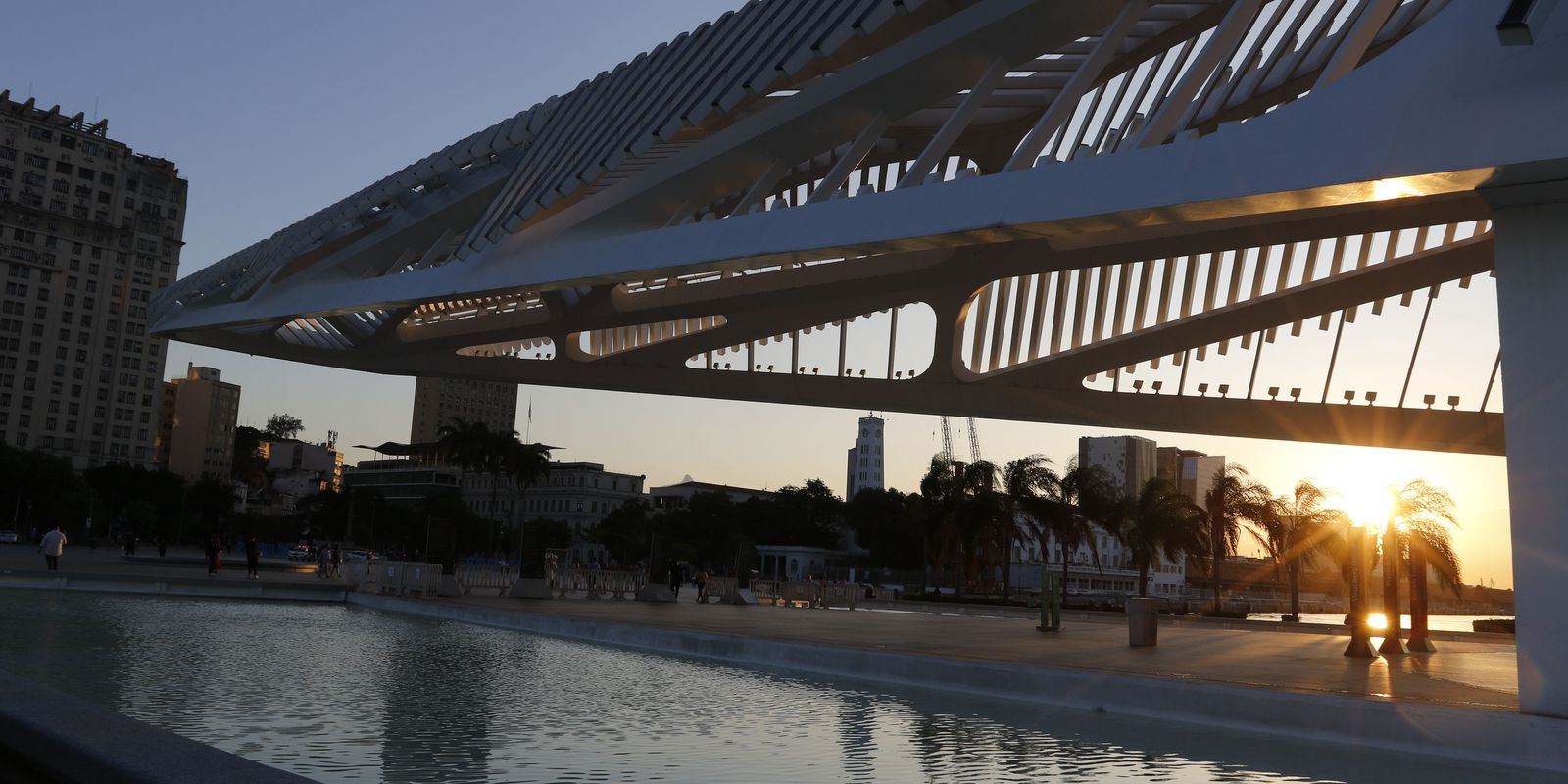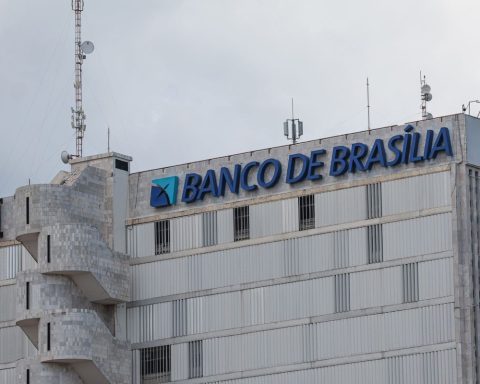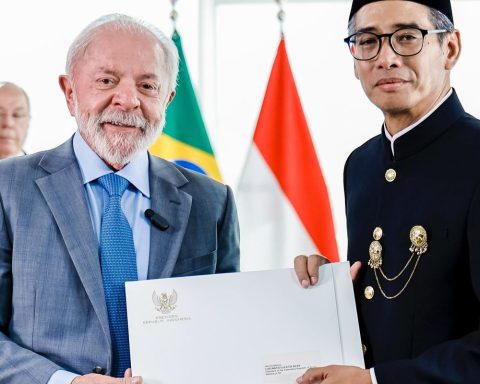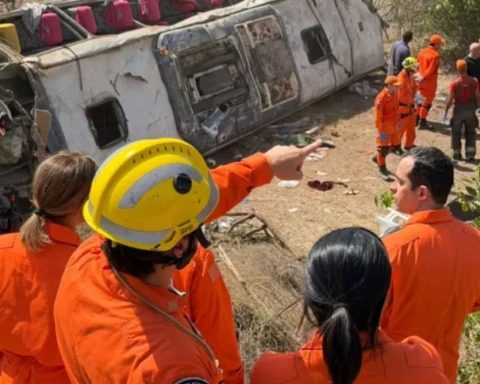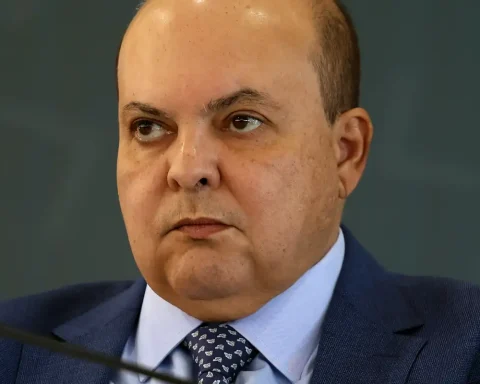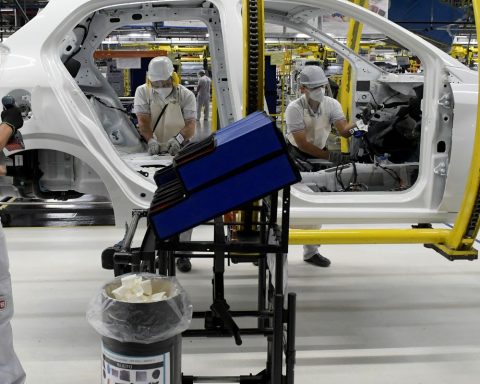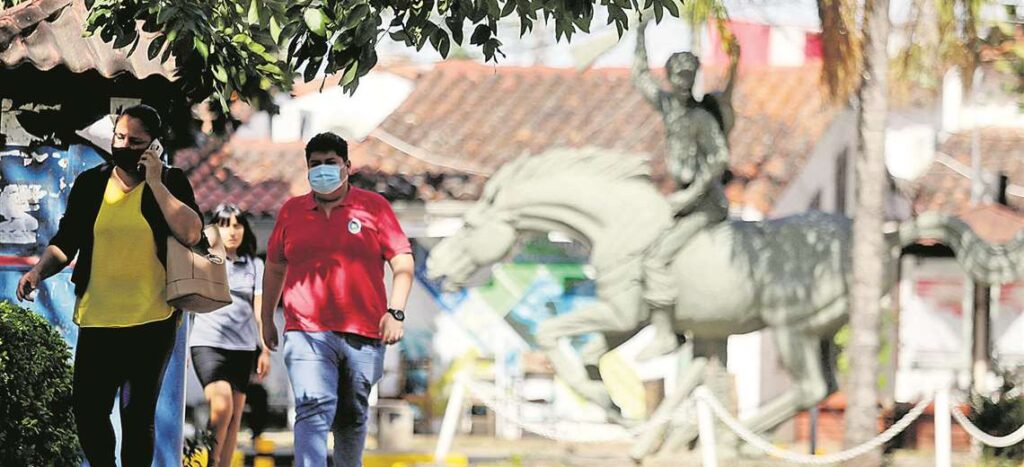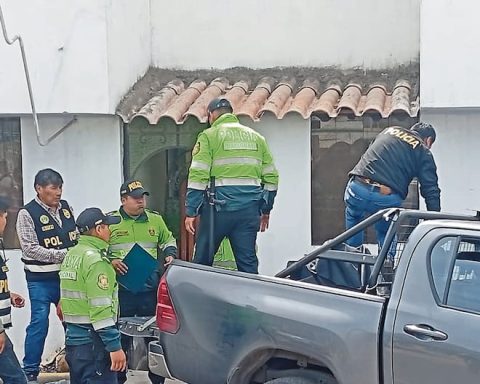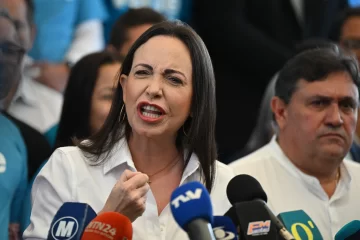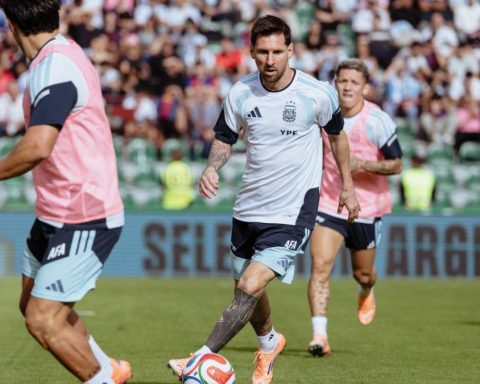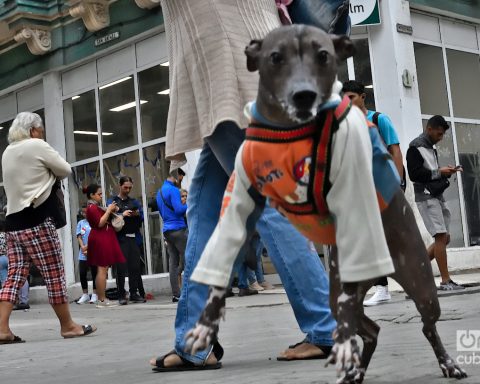One of the forearms is placed in front of the body, horizontally. The other forearm, over it, draws a diagonal line. This is the sign, in Brazilian Sign Language (Libras), of the Museum of Tomorrow, located in downtown Rio. It is with the presentation of this sign that the mediated visit to the museum began, aimed at students from the National Institute of Education for the Deaf (Ines), in the last fridaythursday (3). The visit is part of the Entre Museus Acessíveis project, which aims to promote access to culture in an inclusive way. 
Visitors not only tour the museum and the entire interactive collection, but also debate, in Libras, the importance of what they are getting to know and how this content relates to their own lives. “This is the Museum of Tomorrow. What is this tomorrow? When we talk about tomorrow, it doesn’t just mean the day, it has another concept. It is to reflect on the future”, says the educator of the Museum of Tomorrow, Bruno Baptista, who leads the visit. He was also a student of Ines. The students immediately signal in response to what they believe is important in this tomorrow: “Amazon”, “Forests”, they say. “It’s a little bit of all that we’re going to see here today”, says Baptista.
The Entre Museos Acessíveis project started on the day May 18, which is International Museum Day, and runs until November this year. The focus is on visually impaired and deaf visitors. For now, the Museum of Tomorrow, with mediated visits on Fridays, and the Museum of the Republic, located in Catete, south of Rio, with visits on Wednesdays, are part of the project.
The Education manager of the Museum of Tomorrow and responsible for the project, Camila Oliveira, explains that offering mediated visits is not just providing a translation. “We are offering attitudinal accessibility, that is, relational accessibility. We work with mediating objects so that these concepts can arrive not only because I say what is here, but because I experience what is here”, she says.
During the visit, Bruno Baptista shares a little of his own experience. He says that he has had listeners who were scared when he said he was deaf. “How would you feel? I’m deaf and I’m working here, I’m proud. It is better when there is interaction. Look at Camila, she is a manager and is here learning Libras. It evolves every day”, he tells the visitors, who respond with applause.
Accessibility in museums
In addition to Baptista, visitors are accompanied by the educator at the Museum Eduarda Emerick. Duda, as she prefers to be called, is the first blind biologist trained in Brazil. “It has been a wonderful experience. I really enjoy being in touch with different people and with different issues,” she says. She is even learning Libras and also signals to visitors.
According to the educator, who has worked in two more museums in the city, accessibility is still a problem. “Museums themselves bring this difficulty because they have a lot of collection arranged in showcases or art exhibitions that are usually paintings or sculptures, something that cannot be touched. It is important that we contact the educational sector of the museums, before the visit, to see if there is anyone who can receive us. It is very important to have the figure of the mediator”.
In Brazil, according to the Census of the Brazilian Institute of Geography and Statistics (IBGE), about 24% of the population has a disability. Accessibility to museums for all people is provided for in the Statute of Museums, Law 11.904/2009.
Putting this into practice is still a challenge. According to Camila, full accessibility to museums involves the need to overcome several barriers, including architectural ones, since many buildings are old and have limitations for renovations. “We think a lot about architectural accessibility, with an elevator, a ramp. But, what about for this person to get here? She goes to have access to the content being posted, what types of access will this person to have?” asks the manager.
In addition to the buildings, there is still a need for team training to receive people with disabilities. “I need to have, think about the formation of the public and understand why it is so important for these people to visit museums. The importance is not necessarily in knowing the museum. We have noticed a lot in these meetings that it is not only about the contents of the museums, but the capacity of relationship that these people are often limited to. to have”, says Camilla.
The project is a step towards greater accessibility. According to Camila, the intention is to expand mediation in museums to include other disabilities and other museums in the circuit.
From the museum to the classroom
On the last fridaythursday, students from the National Institute of Education for the Deaf (INES) left the Museum of Tomorrow excited. “I learned a lot, I’m thinking about how to help, how to teach, how to develop for the future”, said 7th year student Vitória Silva.
What students learned at the Museum of Tomorrow will be brought to the classroom for debate. “We collect some of this material before the visitation so that the students, when they come, are aware of what they will find. And we don’t stop there. We took all this work and took it into the classroom to work in an interdisciplinary way, so as to ensure better knowledge”, says the coordinator of Ines, Sidnei Reis, who accompanied the visit.
In addition to the content they learned, there was also the example of Baptista, known as Tubarão. “I’m seeing Tubarão as a mediator and how he manages to do this job. I’m looking at him and seeing myself as a future mediator as well. I’m studying, I want to develop myself, get a degree so that, in the future, I can work like a shark”, says 8th year student Isadora Carvalho.
The project of social and cultural mobilization Entre Museus Acessíveis is an offshoot of the Entre Museus program, promoted by the Museum of Tomorrow since 2017, together with more than 20 museums in Rio de Janeiro. of January. The program is aimed at empowering and including the local population in cultural enjoyment, encouraging them to enter the world of science, arts and culture and, thus, building and expanding paths to full citizenship.
Entre Museos Acessíveis is sponsored by Fondation Engie and invites people with visual impairments and the deaf community to occupy the city and museums. People and institutions interested in making appointments for groups of 15 to 20 people can request by e-mail. [email protected].
In addition to weekly visits to the Museum of Tomorrow and the Museum of the Republic, there are, in the last Saturday of the month, a bicycle ride along the waterfront, with educators and interpreters of Libras and adapted bicycles, in addition to instructors, for the visually impaired public. The tour is offered, preferably, to the participants of the mediated visits that month, but, in case of availability, it can be carried out with other groups.
